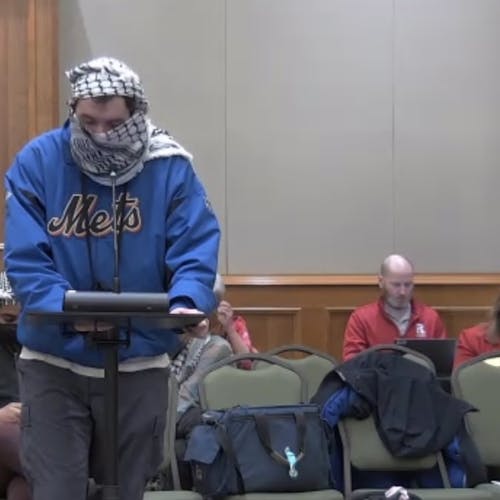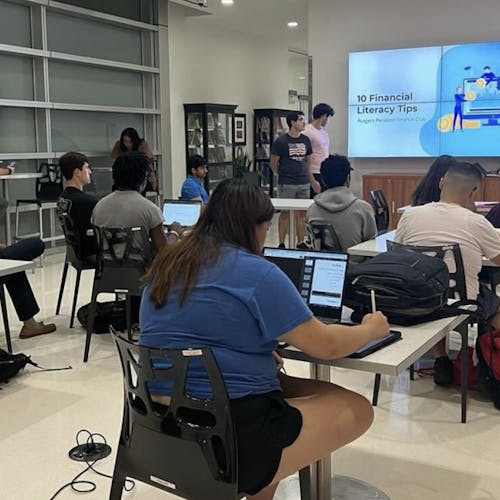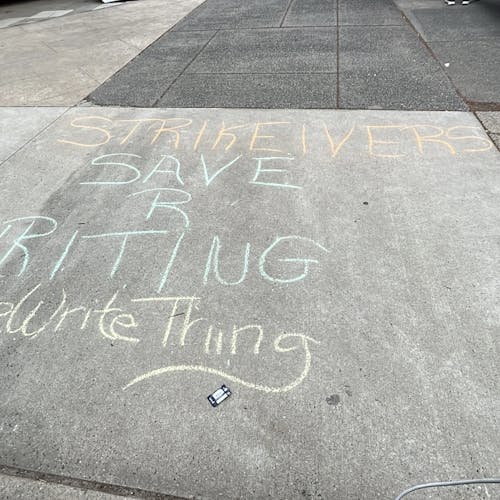Physics professor donates millions for endowed chair

The University received a $1.5 million pledge to fund an endowed chair in the Department of Physics and Astronomy.
The pledge from 77-year-old Claud Lovelace, a professor in the Department of Physics and Astronomy, is the first to go toward a challenge grant from an anonymous donor that will establish 18 endowed chairs at $3 million each, said Carol Herring, president of the Rutgers University Foundation.
Lovelace was one of the founders of string theory, a branch of physics that attempts to give a unified understanding of nature’s basic forces and fundamental particles, according to a University media relations press release.
He came to the University in the early 1970s as one of the most influential people in his field, said Ronald Ransome, chair of the Department of Physics and Astronomy.
Although Lovelace — who is away from the University coping with cancer — could not comment on his gift, he said he specifically wants the money to fund the salary and research of an endowed chair in experimental and condensed matter physics.
“Because I feel I’ve done enough for theory, I decided to establish a chair in experimental solid state physics — that’s the opposite extreme from my work,” said Lovelace in the release. “The experimental physicists at Rutgers are very practical, and I felt they needed to be strengthened.”
Ransome said Lovelace wanted his money to help the world, physics and the University.
“He wanted to [do] something that he felt would do good for humanity. He feels strongly about physics and its importance,” Ransome said. “By contributing to experimental physics, he felt that had the best chance of doing something of practical importance to people in the near term.”
He said Lovelace’s contribution would benefit his department at a time when money is tight.
“Having an endowed chair will give us an opportunity to hire a world-class researcher, which will be good for the University, the department and the state,” Ransome said.
Herring said she is pleased Lovelace is the first to respond to the challenge grant, which is part of the “Our Rutgers, Our Future” fundraising campaign that aims to raise $1 billion for the University.
“This is a wonderful affirmation of Professor Lovelace’s care [for] Rutgers and the physics department,” she said. “It’s a great symbol and it’s wonderful for the future of Rutgers.”
Herring said endowed chairs are a vital part of the University’s faculty.
“They enable us to attract wonderful new faculty and they enable us to retain the very best faculty members we have,” she said.
The $27 million challenge grant, announced in September, is the largest single gift from an individual the University has ever received, and it enables people to establish endowed chairs at half the actual cost, Herring said.
As Lovelace has matched the anonymous donors’ $1.5 million, the new position will be called the Professor Claud Lovelace endowed chair in experimental condensed matter physics.
Lovelace was born in England and completed his undergraduate work in South Africa. He returned to England for his graduate studies at Imperial College, Ransome said.
Lovelace’s interest in physics started much earlier than his graduate studies, he said in the release.
“I used to go to Zurich for orthodontist appointments. I would buy graduate-level physics books there and read them on my train trips home,” he said in the release.
Before coming to the University, Lovelace worked for CERN, the European Organization for Nuclear Research, Ransome said. Since this time, Ransome said Lovelace has been a prominent theorist devoted to abstract theory.
Ransome also said Lovelace willed his entire estate to the University in the absence of immediate family to survive him.
“This will also endow a graduate fellowship,” Ransome said. “[Lovelace] has chosen to use his money to help the department and Rutgers.”



